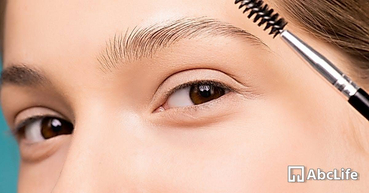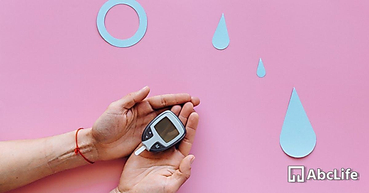The Importance of Sleeping Well for Skin Health
We are all aware of the importance of maintaining a good skincare routine and keeping our skin healthy. But did you know that the quality of your sleep has an impact on the health of your skin? A good night's sleep not only improves your overall health but also keeps your skin looking its best.
Your body goes into repair mode while you sleep, and your skin regenerates. During the deep stages of sleep, the production of collagen, a protein that keeps the skin firm and supple, is at its peak. Lack of sleep, on the other hand, can cause a slew of skin issues, including dark circles, puffiness, dryness, and even breakouts.
In this article, we'll look at the impact of sleep on skin health and why getting a good night's sleep is so important for healthy skin. We'll also give you advice on how to improve your sleep habits for better skin health and an overall sense of well-being.
Understanding the Nightly Regeneration Process of the Skin

Our skin works tirelessly to repair and regenerate itself while we sleep. This procedure is critical for maintaining healthy, youthful skin. However, a lack of sleep or poor sleep quality can disrupt the skin's nightly regeneration process.
During sleep, blood flow to the skin increases, allowing oxygen and nutrients to reach skin cells. This increased blood flow also aids in the removal of toxins and waste. Furthermore, during sleep, the rate of cell division and growth in the skin increases, assisting in the repair of damaged tissues. Sleep also reduces inflammation, which is a major cause of skin aging.
However, chronic sleep deprivation can reduce collagen production, a protein responsible for skin elasticity and firmness. Fine lines, wrinkles, and sagging skin can result from collagen depletion.
The Importance of Sleeping Well for Skin Health
A good night's sleep is critical for maintaining healthy, youthful skin. Adequate sleep allows the skin's natural regeneration process to continue uninterrupted, assisting in the repair of damage and the prevention of premature aging. Sleep deprivation can reduce collagen production and increase inflammation, both of which can contribute to aging and skin damage.
Good sleep habits are essential for supporting the skin's nightly regeneration process. This includes sleeping for 7-9 hours per night, avoiding caffeine and alcohol before bed, and developing a relaxing bedtime routine. Purchasing a comfortable mattress and pillow can also help to improve sleep quality and skin health.
We can support our skin's natural regeneration process and maintain healthy, youthful-looking skin for years to come by prioritizing a good night's sleep.
The Effects of a Poor Night's Sleep on Skin Health

A good night's sleep is necessary for many bodily functions, including skin health. When we don't get enough sleep, our skin often shows the consequences the next day. Dark circles under the eyes are one of the most noticeable side effects. When we don't get enough sleep, our blood vessels dilate, causing blood to pool in the area and giving us a dark appearance.
Inadequate sleep can also contribute to more fine lines and wrinkles. The body produces collagen, a protein that helps keep skin plump and smooth, while sleeping. Sleep deprivation can disrupt collagen production, resulting in the formation of fine lines and wrinkles. Furthermore, a lack of sleep can cause inflammation in the body, exacerbating skin conditions like acne, eczema, and psoriasis.
Overall, getting a good night's sleep is critical for maintaining healthy and youthful skin. We can help reduce the negative effects of a bad night's sleep on our skin by prioritizing our sleep.
Sleep and Collagen: The Foundations of Healthy Skin
A good night's sleep is critical for maintaining healthy skin. The body repairs and regenerates tissues, including the skin, while sleeping. Premature aging, fine lines, dark circles, and a dull complexion can all be caused by a lack of sleep.
Collagen is the most abundant protein in the body and a necessary component of healthy skin. It is in charge of keeping the skin's elasticity, hydration, and firmness. Collagen production, on the other hand, declines with age, resulting in sagging, wrinkles, and fine lines. Sleep is essential for collagen production. The body produces human growth hormone (HGH) during sleep, which stimulates collagen synthesis.
Getting seven to nine hours of sleep each night is therefore critical for maintaining healthy skin. Experts recommend sleeping on your back, using silk pillowcases, and avoiding alcohol and caffeine before bedtime to boost collagen production even more. Prioritizing sleep and skin care can result in a brighter, smoother, and more youthful complexion.
How to Optimize Your Sleep for Better Skin Health
A good night's sleep is essential for overall health and well-being, including skin health. Sleep deprivation can often be seen on the skin as dark circles, puffiness, and fine lines. Here are some suggestions for improving your sleep for better skin health:
Create a sleep-promoting environment
Your bedroom environment has a significant impact on your sleep quality. For a better night's sleep, reduce noise, use comfortable bedding and pillows, and keep your room cool and dark.
Establish a sleep routine
A consistent sleep routine trains your body and mind to prepare for sleep at the same time every day. This could include activities such as reading a book or taking a hot bath before bed to signal to your body that it is time to sleep.
Avoid caffeine and alcohol
Caffeine and alcohol can disrupt your sleep, causing restlessness and disruption. It is critical to limit or avoid these substances, especially before going to bed.
Eat a balanced diet
Eating a well-balanced diet rich in essential nutrients can help you sleep better. Heavy or spicy meals should be avoided before going to bed because they can cause indigestion and disrupt sleep.
Reduce blue light exposure
Electronic devices emit blue light, which can disrupt your sleep cycle. It is best to avoid using these devices before going to bed and to turn them off at least an hour before going to sleep.
Implementing these suggestions can help you improve your sleep quality, which will benefit your skin health. Make sleep a priority because it is critical to maintaining a healthy body and mind.
Dark Circles and Puffiness: How Sleep Can Help
Dark circles and puffiness around the eyes can be aggravating, making you appear tired even when you're well-rested. These tiredness symptoms are frequently caused by poor sleep quality or a lack of sleep. When you don't get enough sleep, the blood vessels around your eyes dilate, making the skin around them darker or with a bluish tint.
Inadequate sleep can also cause fluid retention, which can cause eye puffiness. Your body requires enough sleep to regulate the production of hormones that help regulate fluids in your body. When you don't get enough sleep, your eyes may retain fluids that cause puffiness.
The good news is that getting a good night's sleep and improving your sleep quality can help reduce the appearance of dark circles and puffiness. To help maintain quality sleep, try to get at least seven hours of sleep each night and establish a consistent sleep routine. This can help reduce blood vessel dilation, regulate fluid levels, and promote brighter, healthier-looking skin around the eyes.
Sleep and Skin Aging: What You Need to Know
Sleep is essential for maintaining overall body health, including skin health. Our skin naturally loses elasticity and moisture as we age, resulting in wrinkles and fine lines. However, a lack of sleep can hasten the aging process and damage the skin.
Sleep deprivation raises cortisol levels, a stress hormone that degrades collagen and elastin, the proteins that keep the skin firm and supple. As a result, the skin becomes dull and sagging, with fine lines and wrinkles. In addition, lack of sleep reduces the production of Human Growth Hormone (HGH), which repairs damaged skin cells and stimulates collagen growth.
The Importance of Sleeping Well for Skin Health
A good night's sleep is essential for maintaining youthful and radiant skin. It enables the body to repair and regenerate skin cells, resulting in the production of collagen and elastin. A lack of sleep not only affects the appearance of the skin but also causes acne, dryness, and uneven skin tone.
As a result, it is critical to prioritize sleep and maintain a consistent sleep schedule in order to promote healthy skin. Getting enough quality sleep can help to slow the aging process, protect the skin, and prevent premature aging. Furthermore, incorporating a skincare routine tailored to your skin type and using topical treatments can improve the skin's health and vitality.
Good Sleep Hygiene Habits for Optimal Skin Health
A good night's sleep is not only important for overall health, but it also has a significant impact on skin health. Sleep deprivation can result in a variety of skin issues such as dark circles, wrinkles, puffiness, and acne breakouts.
It is critical to practice good sleep hygiene habits in order to maintain optimal skin health. First and foremost, it is critical to develop a consistent sleep routine. Going to bed and waking up at the same time every day helps your body's internal clock to regulate, promoting better sleep quality.
Another important step toward good sleep hygiene is to avoid using electronic devices before bedtime. Blue light emitted by electronic devices like smartphones, laptops, and tablets can disrupt your sleep-wake cycle, making it difficult to sleep. Instead, do something relaxing before bedtime, such as reading a book or taking a warm bath.
It is also critical to provide a comfortable sleeping environment. To promote sound sleep, sleep in a cool, dark, and quiet room. Purchasing a comfortable mattress and pillows can also help you sleep better.
Finally, getting enough sleep is critical for good skin health. You can prevent skin problems and promote a healthy, glowing complexion by practicing good sleep hygiene.











